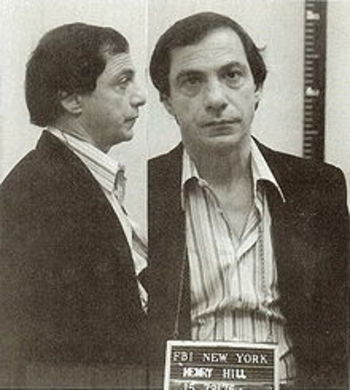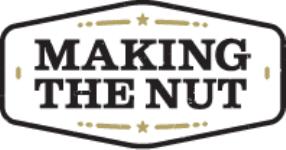Punting Profiles: The Boston College Point Shaving Scandal
It seemed like a good idea at the time. Easy cash and the thrill of the edge. Rick Kuhn, Jim Sweeney and Ernie Cobb, three kids at Boston College who could all play hoops, left their basketball legacies not on the hardwood floors of Campus America but on the back-pages of New England newspapers and in the thickness of court transcripts and police tapes. What started off as seemingly a quick buck ended up in mob entwined indictments, prison, infamy and disgrace. To this day it remains the most infamous scandal in the history of college sports and stands as a low point in the history of the NCAA. Those final days of 1978 and the newborn days of 1979 certainly remain shameful times for Boston College.
It all started not within the walls of the Bapst Library or Gasson Hall or Alumni Stadium but in a prison many hundreds of miles away. Henry Hill, a New York mob associate who achieved worldwide fame when played by Ray Liotta as the central character in the movie Goodfellas, was in the dying days of a prison sentence when he met a small time Pittsburgh drug dealer and crook named Paul Mazzei. Both had plenty in common with not the least significant being that both had engaged in a bit of bookmaking once upon a time. People tend to get somewhat creative when kept in confined spaces for a period of time and Hill and Mazzei were certainly prepared to dream. They concocted a scheme that would surely be a success and surely be a money maker when they got out of prison. Mazzei was an associate of former Pittsburgh resident and Boston College player Rick Kuhn. Mazzei was sure he could get Kuhn to shave points. Hill would use his mob associates to get the bets on.
Kuhn was immediately receptive to the idea. He recruited point guard Jim Sweeney and then Ernie Cobb, both co-captains of the Eagles hoops team. Sweeney was the point guard and as such, the man with the ball in his hands the most. Cobb was Boston College’s top scorer. Recruitment was not difficult. College players are forbidden from earning money from basketball despite the mammoth returns they provide for their college and the NCAA. There have been many cases of college athletes, through necessity or a stout belief in their right to claim a share of the income they provide, flouting these strict rules by engaging in gambling or taking money from alumni members and supporters known as boosters. Point shaving is never as hard to organise in college or amateur sports as it is in professional sports because the proposed risk is much less. There is no risk to income and there is a greater need, on average, for money. And the argument often put to them is that they are not being asked to lose, only to win by less. Or lose by enough. This is much easier to rationalize, for the protagonists, than tanking a game.
All involved decided the 1978-79 season would be when the deal went down. Games on the schedule were tenuously picked out and measures were put in place. A meeting between Hill, Mazzei and their associates made sure everything was a goer from their end. They then traveled to Boston to meet the players. It was determined that the Boston College-Providence game would be fixed. The wheels were in motion.
The Providence game did not go as planned, however. Boston College entered the game as seven point favourites against Providence and those inside the scam lost heavily. Boston College won by thirteen and Hill, Mazzei and their associates were less than impressed.
Their next attempt at skullduggery was more successful. Playing against lowly Ivy League school, in terms of modern day athletics, Harvard, BC snuck home by three. They were favoured by twelve. A loss to UCLA as outsiders in December of 1978, a loss against Rhode Island as outsiders in January of 1979 and a win against Holy Cross within the point spread in January of 1979 also saw the bettors win big.
The bettors biggest go, however, was saved for the Holy Cross game in February. The syndicate of fixers was confident due to recent successes and bet with vigour against Boston College. The initial line of Holy Cross as two point favourites shifted to Holy Cross as seven point favourites by tip off on the weight of money wagered. Bookies, however, kept the scratch. Boston College lost by only two.
Boston College went 22-9 for the 1978-79 season and didn’t arouse anything more than the normal suspicion. Rumours circulated about the possibility the team was point shaving but there was no hard evidence and there was no pursuit of the rumours. The players had made $2,500 each per game, Hill cleared over $100,000 and bettors higher up the line are said to have made up to $250,000. They had all gotten away with it or so it seemed.
That was until 1981, when Henry Hill turned Government informant. Hill has provided the Government with a great deal of information relating to organised crime and in particular Jimmy Burke, including information on the fabled Lufthansa Heist, which netted the assailants nearly $6 million. The toothpaste was out of the tube when Hill was attempting to convince a woman to provide testimony about a mob drug operation. She was having trouble remembering where she was on a particular date when Hill blurted out: “you know where we was, we was in Boston, fixing basketball games”. The gig was up. When the focus of Government investigation turned to the point shaving, Hill was quick to spill the beans. He named names and was happy to take the shine of infamy. “I’m the Boston College basketball fixer…it was a day’s pay, it was interesting and it gave me a nice feeling”.
The fallout from the scam was big. Jimmy Burke, Rick Kuhn, Paul Mazzei and two associates of Burke were all indicted and found guilty on charges of conspiring to engage in a pattern of racketeering activity, sports bribery and use of interstate travel to aid in racketeering enterprises. They all went to prison, including Kuhn, who without doubt got himself in much deeper than anticipated. He received ten years, the biggest ever sentence given to an athlete in a point shaving scandal. Both Jim Sweeney and Ernie Cobb, while not going to prison, had their lives altered for the worse. Both were shunned by the NBA and became pariahs, all for some cash to buy stereos and jewelry. With the benefit of hindsight, the three ball players would no doubt declare that the quick buck was not nearly as cheap as they thought.
This betting scandal would not be the first Boston College was caught up in. In 1954 the school was caught up in a wagering scandal. Nor would it be the last. In 1996, six football players were removed from the team while eleven others were suspended for reportedly betting against BC in a 45-17 loss to Syracuse.
Nor will it act as any type of significant deterrent against point shaving in college sports. Through attempting to maintain the integrity of college athletics, the NCAA has left itself open to corruption. The dollar will always be king and when a player and a team and a sport creates millions of dollars in revenue and the players receive none of it, there is sure to be an element of bitterness. And this is what the NCAA has on its hands and will until players have the penal restrictions loosened on their ability to earn money from their talents.
This story was first printed on Punting Ace in 2008

